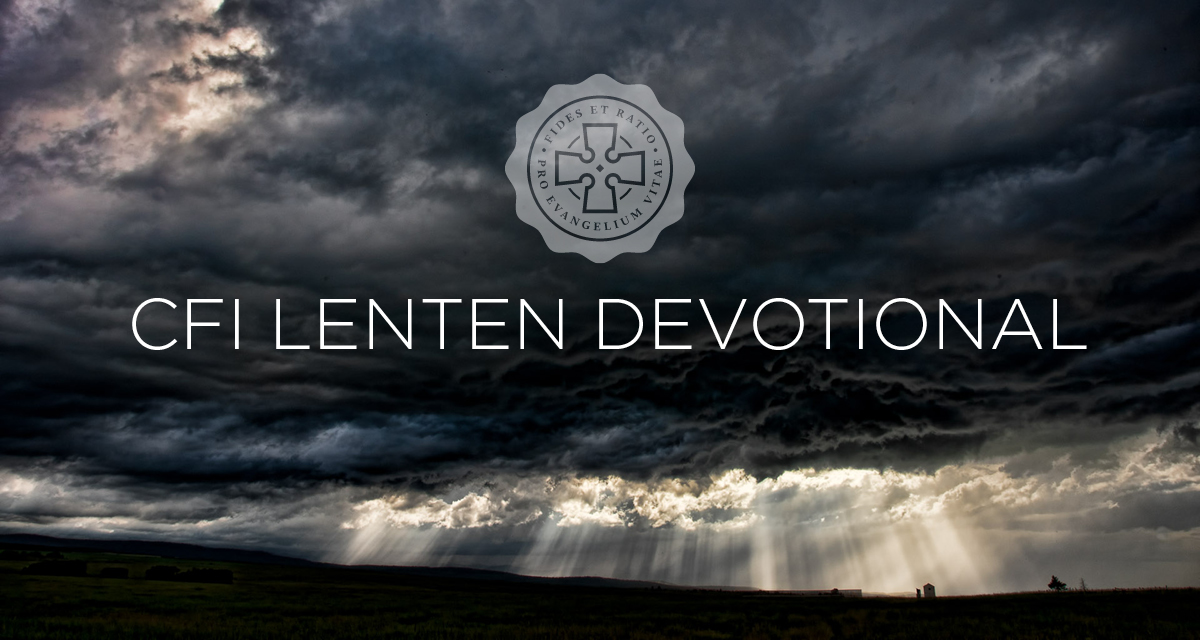Good Friday Devotional: Our Great High Priest
During Lent, the Center for Faith and Inquiry (CFI) shares meditations penned by members of the Gordon community. Join CFI this Lenten season in prayer, in contemplation and in anticipation. Sign up to receive these devotions in your inbox >
Good Friday: Isaiah 52:13–53:12 and Hebrews 4:14–16; 5:7–9
Humility is self-knowledge. It is not a depressed feeling of worthlessness, but the opposite. For Christians, genuine humility is a true knowledge of God and of ourselves—of God and his purposes for the world and of ourselves as we live out his purposes. Authentic humility allows a person to be courageous in all circumstances.
Isaiah was a person of humility, whose knowledge of God and of himself and all the people of Judah and Jerusalem allowed him to speak the Word of the Lord to a rebellious generation. For his faithfulness he was persecuted during the reign of Manasseh, perhaps facing death by being sawn in pieces as Hebrews 11:37 mentions.
If ever we can imagine men and women who exemplified courage in crisis, the Old Testament prophets stand out, with Isaiah being one of the leaders. When we read the Lenten passages from Isaiah, he was drawn to a glorious Messianic vision. The grandeur of his vision prevailed through time when Isaiah’s hope was incarnated in the person of Jesus Christ, the Great High Priest honored in the Hebrews passage. Here was the Savior of all humankind who was fully human and yet without sin, but not a Deist Savior unmoved by our human condition. Nor a High Priest boasting of his exalted position. Indeed, here was God’s Redeemer and High Priest who “learned obedience through what he suffered” (5:8), and by both his suffering and death on a Roman cross made an atonement for the whole world. On that cross hanged the humble Redeemer, sure of his knowledge of himself and God. But even in the midst of suffering here was the exalted Redeemer. That is the message of Good Friday.
When Isaac Watts was composing perhaps his greatest hymn, we can imagine him searching for the first word to capture the singers’ attention and to express the unimaginable. Perhaps after thinking of several words, he finally came up with the perfect one—”Alas!” And what followed echoed what both Isaiah and the writer to the Hebrews wrote about millennia ago: “Alas! and did my Savior bleed, And did my Sovereign die?” The last verse well speaks to the courage we all must confess in this time of Lent as we reflect on God and ourselves:
Dear Savior, I can ne’re repay
The debt of love I owe!
Here, Lord, I give myself away; ‘Tis all that I can do.
By Roger J. Green, Professor Emeritus of Biblical and Theological Studies
 The Bell
The Bell